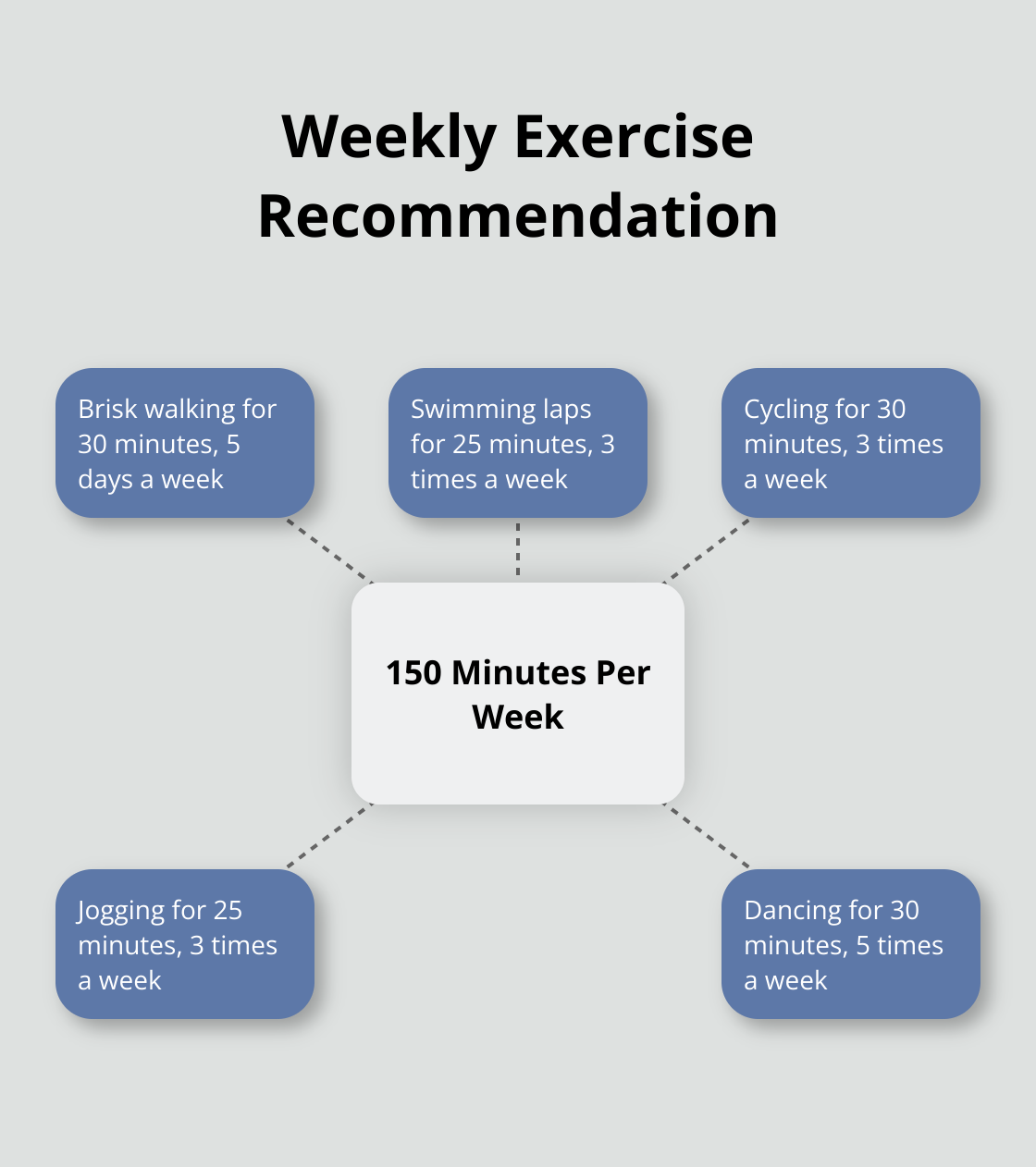At Global Positive News Network, we believe that success is built on the foundation of positive daily habits. These small, consistent actions shape our mindset, behavior, and ultimately, our achievements.
In this blog post, we’ll explore how to develop and implement powerful habits that can transform your life. We’ll provide practical tips and strategies to help you create a routine that aligns with your goals and aspirations.
How Daily Habits Drive Success
The Power of Consistent Actions
Habits form the foundation of success. These small, regular actions shape our lives and determine our outcomes. At Global Positive News Network, we’ve witnessed numerous individuals transform their lives through positive daily habits.
The Compound Effect in Action
Small actions, repeated consistently, yield significant results over time. This principle, known as the compound effect, lies at the core of habit formation. Minor habit changes can compound over time to yield remarkable life improvements. This concept offers practical tips for starting and maintaining positive habits that can lead to significant personal growth and success.
Neuroplasticity and Success
Positive habits don’t just alter your actions; they reshape your mindset. Neuroplasticity and habit change play a pivotal role in forming new habits and breaking old ones. This process illuminates the path to rewiring your brain for success, making it easier to adopt and maintain positive behaviors over time.
Success Stories: Habits in Practice
Let’s examine concrete examples of how successful individuals leverage daily habits:
- Oprah Winfrey initiates her day with meditation and gratitude journaling. She attributes these practices to stress reduction and increased focus and productivity.
- Bill Gates dedicates an hour to reading every night before bed. This habit helps him stay informed and innovative in the rapidly evolving tech landscape.
- Richard Branson rises at 5 AM daily to exercise. He claims this habit provides him with an extra four hours of productivity each day.
These examples illustrate that success doesn’t stem from grand gestures, but from consistent, positive daily actions. The implementation of similar habits in your life can set you on the path to achieving your goals and realizing your full potential.
Cultivating Your Own Success Habits
The development of positive habits requires time and effort. Try to start small (perhaps with just one new habit) and maintain consistency. You’ll soon witness these daily actions compound into life-changing results.
As we move forward, we’ll explore specific strategies to identify and develop these powerful habits that can transform your life. The next section will guide you through the process of self-reflection and goal-setting, essential steps in creating your personalized habit formation plan.
How to Identify and Develop Positive Habits
Assess Your Current Routine
Start your journey by examining your daily activities. Keep a journal for a week to record how you spend your time. This exercise will help you pinpoint positive habits to strengthen and negative ones to replace. Self-reflection is a critical component of self-awareness and emotional intelligence, and research shows it can make leaders become far more effective.
Set Clear, Actionable Objectives
After identifying areas for improvement, establish specific goals. Instead of vague aims like “be more productive,” focus on concrete targets such as “complete three important tasks before noon.” The SMART goal-setting framework (Specific, Measurable, Achievable, Relevant, Time-bound) proves effective for this purpose.
Begin Small and Build Momentum
Avoid overhauling your entire routine at once. Start with one or two small habits and expand gradually. If your goal is to exercise more, begin with a 10-minute walk each day. As this becomes routine, increase the duration or intensity. It takes an average of 66 days to form a new habit, according to research.

Implement Habit Stacking
Habit stacking involves connecting a new habit to an existing one. For example, if you already make coffee every morning, use this as a cue to practice five minutes of meditation while your coffee brews. This technique (popularized by James Clear in “Atomic Habits”) can significantly increase the likelihood of maintaining new habits.
Create a Supportive Environment
Your surroundings play a vital role in habit formation. Remove obstacles that might hinder your new habits and add cues that encourage them. If you want to read more, place books in visible locations around your home and remove distractions like TV remotes.
Monitor Your Progress
Use a habit tracker app or a simple calendar to track your consistency. Seeing your progress visually can serve as a powerful motivator. An American Psychological Association study found that people who monitor their progress towards goals are more likely to succeed.
Overcome Obstacles with Planning
Anticipate potential obstacles and plan how you’ll overcome them. This strategy, known as implementation intentions, can increase your chances of sticking to new habits. For instance, “If I’m too tired to go to the gym after work, I’ll do a 15-minute home workout instead.”
Stay Motivated with Accountability
Share your goals with friends, family, or an online community. Regular check-ins with someone can significantly boost your motivation. A Journal of Applied Psychology study found that people with an accountability partner have a 65% chance of completing a goal, compared to just 8% of those without.

Celebrate Small Victories
Acknowledge and celebrate your progress, no matter how small. This positive reinforcement can help maintain motivation and make the habit-forming process more enjoyable. Even small celebrations can trigger the release of dopamine (a neurotransmitter associated with motivation and reward).
As you embark on your journey to develop positive habits, remember that consistency is key. The next section will guide you through the process of implementing these habits into your daily routine, ensuring they become an integral part of your path to success.
How to Build a Success-Driven Daily Routine
Power Up Your Morning
Start your day with intention. Drink a glass of water to rehydrate after sleep. Follow this with 10 minutes of meditation or deep breathing exercises. A 2018 study published in the Journal of Positive Psychology revealed that just 10 minutes of meditation can significantly improve focus and reduce anxiety.
Incorporate physical activity into your morning routine. A 15-minute walk or quick yoga session can boost your energy and mental clarity. The Anxiety and Depression Association of America reports that exercise effectively reduces fatigue, improves alertness and concentration, and enhances overall cognitive function.
Before you start work, write down your top three priorities for the day. This simple act of planning can increase your productivity by up to 25% (according to a study published in the Journal of Educational Psychology).
Maximize Work Hours Productivity
Tackle your work with focus and efficiency. Taking pre-determined, systematic breaks during a study session has mood benefits and appears to have efficiency benefits.
Turn off notifications on your phone and email during focused work periods. A University of California, Irvine study found that it takes an average of 23 minutes and 15 seconds to return to a task after an interruption.
Take short breaks for movement throughout your day. A 2-minute walk every hour can improve your mood and energy levels. The American Heart Association recommends at least 150 minutes of moderate-intensity aerobic activity per week.

Stay hydrated and maintain balanced nutrition. The National Academy of Medicine recommends about 15.5 cups (3.7 liters) of fluids a day for men and about 11.5 cups (2.7 liters) a day for women.
Create a Reflective Evening Routine
As your workday ends, transition into a relaxing evening routine. Review your accomplishments for the day. Celebrate your wins, no matter how small. This practice of gratitude can significantly improve your overall well-being, according to research published in the Journal of Personality and Social Psychology.
Spend 15-20 minutes planning for the next day. Write down your top priorities, prepare your workspace, or lay out your clothes. This simple act can save you valuable time and reduce morning stress.
Engage in a relaxing activity to unwind. Read a book, listen to calming music, or practice gentle stretches. Avoid screens at least an hour before bed, as the blue light emitted can disrupt your sleep patterns. The National Sleep Foundation recommends 7-9 hours of sleep per night for optimal health and productivity.
Final Thoughts
Positive daily habits hold the power to transform lives. These small, consistent actions accumulate over time, leading to significant personal growth and success. We encourage you to start small, focus on one or two habits, and build from there with patience and persistence.
The benefits of cultivating positive daily habits extend to various aspects of life, including productivity, mental well-being, and relationships. As you implement these strategies, you’ll likely notice positive changes in your daily experiences. We at Global Positive News Network believe in the power of positivity to create meaningful change.
We invite you to visit our website for daily doses of positivity that can complement your journey towards developing positive habits. Every small step counts in this process of personal growth. You have the power to shape your destiny through positive daily habits (with dedication and perseverance).


